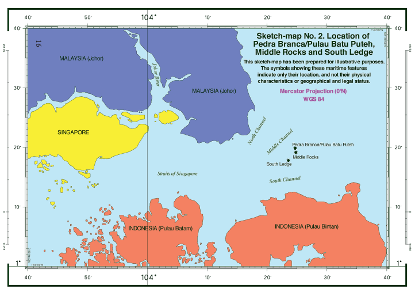Introduction
Through their governments, states make decisions that have implications in international law. Article 1 of the 1933 Montevideo Convention on the Rights and Duties of States includes ‘government’ as a criterion of statehood. However, the legal literature offers no consensus on which entity would enjoy governmental status in cases of competing claims. In particular, scholars cannot agree whether an ‘effective entity’ should prevail over a constitutional one. Thus, this post analyzes and proposes that ‘effective control’ is the only relevant rule for determining the legitimate government of a state under customary international law.
The test of ‘effective control’
In the Tinoco Claims Arbitration of 1923, sole arbitrator Taft ruled that an entity becomes the government of a state if it has ‘effective control’ This control is established if three criteria have been cumulatively fulfilled. First, the entity must exercise authority over all or most of the territory. While the test does not require the entity to demonstrate control over all territory, control over capital may be a decisive factor. For example, in the cases of the Democratic Republic of the Congo in 1960 and Cambodia in 1973, control of the capital was a decisive factor. Second, the entity must have the acquiescence of the population, which necessitates their obedience. Third, the entity must demonstrate that its control and authority have a prospect of permanence. This criterion does not set a specific timeline for establishment. Nevetheless, it may be established if the entity has widespread acceptance by the population. For example, Michel Djotodia was accepted as the legitimate president of the Central African Republic within a month because he was widely accepted by the state’s population.
Recent Proposals in international law, and their legal weaknesses
The ‘effective control’ test has been applied, for example, during the Spanish Civil War, when the Nationalist government prevailed over the Republicans and established effective control in Spain. Since then, Japan, the Netherlands, Switzerland, Italy, the United Kingdom, the United States of America, Brazil and Argentina have relied on the effective control test to determine the proper claimant of governmental status. Therefore it has long been understood by scholars, domestic courts and States that the primary test to determine the government of a State in the event of competing claims is that of ‘effective control’.
Since the mid-1990s, however, ineffective constitutional claimants have prevailed over effective ones. Manuel Zelaya in Honduras, Alassane Ouattara in Côte d’Ivoire, Adama Barrow in Gambia, and Juan Guaidó in Venezuela, for example, have been recognized as legitimate heads of state by the international community based on their constitutional origin. As a result, it has been proposed by some scholars that the test to determine the government of the State has changed from the ‘effective control’ to that of constitutionality. However, this position is untenable. In this regard, International Law Association’s review of State practice demonstrates that ‘effective control’ remains to be primary. Addressing those instances when constitutional claimants were recognized when there was a competing effective entity, not many States really acted on this recognition. For example, Brazil and Chile, despite having recognized Guido as the head of Venezuela, have not expelled diplomats of Maduro. Similarly, the African Union has accepted and relied on the National Transitional Council, which was unconstitutional under Libya’s Constitution. Given that recognition of the entity as the government does not make it such, isolated instances in which ineffective claimants were recognized indicate political support rather than the development of a new rule of customary international law.
Position of International Organizations and Tribunals
The ‘effective control’ test remains to be only test, which has been relied by international organizations and tribunals. In 2011, The United Nations General Assembly accepted representatives of the National Transitional Council of Libya, and in 2019, it accepted Maduro’s representatives. Although both were deemed to be unconstitutional by the international community, they exercised effective control. Similarly, the Office of the Prosecutor of the International Criminal Court relied on ‘effective control’ test to determine the right government of Egypt in 2013, when the constitutional government was overthrown by coup d’etat.
In the ConocoPhillips Hamaca B.V. v. Venezuela (2020) and Mobil Cerro Negro Holding Ltd. v. Bolivarian Republic of Venezuela (2021), the International Centre for the Settlement of Investment Disputes was presented with competing claims from Juan Guaidó and Nicolás Maduro’s representatives, who were seeking to represent Venezuela in the proceedings. The tribunal ruled in favour of Maduro and explained its decision by relying on the ‘effective control’ test. Therefore, practice of the international organizations and tribunals demonstrate that ‘effective control’ test continues to be the primary test to determine the government of the State.
The ‘constitutionality’ test would limit State’s right to choose and change its government if accepted
In Advisory Opinion on Western Sahara (1975) and the Nicaragua case (1986), the International Court of Justice held that States have the sovereign right to choose their form of government. The ‘effective control’ reflects the choice of the State, since it can choose any government as long as it is supported by the population. In contrast, the ‘constitutionality’ test, instead of control and authority, coerces the State into a specific form of government, and therefore violates its right to choose and change its government.
Conclusion
An analysis of the current practices of international organizations, states, and courts demonstrates that the test of ‘effective control’ continues to be dominant in international law. While the international community has seen instances in which ineffective claimants were recognized, states did not rely on this recognition to take action. Therefore, mere recognition without reliance cannot be considered an acknowledgment of the governmental status of those claimants.
Author
Muhammadali Rahmonov is a junior student at the Tashkent State University of Law, Tashkent, Uzbekistan with an interest in public international law, civil and criminal law.





